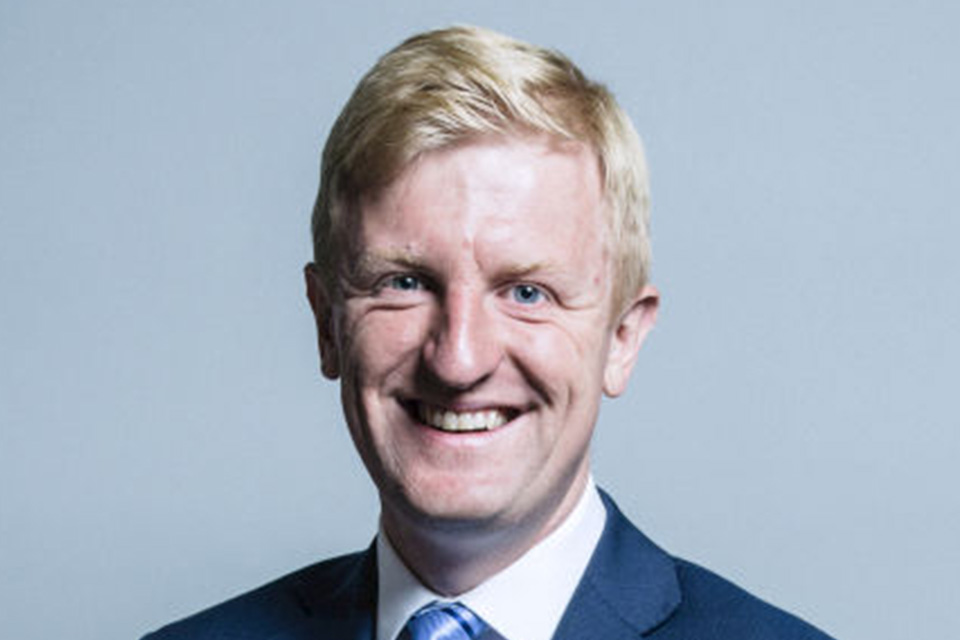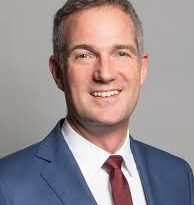Oliver Dowden – 2020 Statement on the Coronavirus
Below is the text of the statement made by Oliver Dowden, the Secretary of State for Digital, Culture, Media and Sport, in the House of Commons on 30 May 2020.
Let me begin with the latest figures:
4,171,408 tests for coronavirus have now been carried out in the UK, including 127,722 tests carried out yesterday;
272,826 people have tested positive, that’s an increase of 2,445 cases since yesterday;
And sadly, of those tested positive for coronavirus, across all settings, 38,376 have now died. That’s an increase of 215 fatalities since yesterday. This new figure includes deaths in all settings not just in hospitals.
Of course, every one of those deaths is a tragedy, for the family involved and our thoughts are with all of them.
As the Chancellor outlined yesterday, those numbers show we are now past the peak and as we continue to flatten the curve, we are able to start reopening parts of the economy. We are also looking at how to begin relaxing other measures so that we can reestablish some normality in other parts of our lives.
Which brings me to something which many people have been eagerly awaiting news about – that’s the return of live sport.
More than two months after sport stopped, and after weeks of round-the-clock discussions with medical experts and professional sports bodies, I’m delighted to announce today that the government has published guidance which allows competitive sport to resume behind closed doors from Monday at the earliest, and crucially, only when it is safe to do so.
It’s up to each individual sport to decide exactly when to resume competition. They know their sports best.
But football, tennis, horse racing, Formula One, cricket, golf, rugby, snooker and others – all are set to return to our screens shortly, with horse racing first out of the gate in the North East next week.
It’s been a huge challenge to get to this point. We’ve taken a forensic, clinician-led approach, working with Public Health England and the Department of Health every step along the way.
We’ve had dozens of meetings, and published pages of detailed guidance outlining first how to get elite athletes back into socially-distanced training, and then back into close-contact training.
Throughout all of this, we’ve put the safety of the athletes, coaches and support staff first and foremost. And by working so closely with the sports themselves, we have made sure this has been a collaborative, consensual effort to create the safest possible environments for everyone involved.
The guidance outlines various measures that need to be in place for an event to go ahead, and to keep everyone involved safe. That includes a screening process for coronavirus symptoms at the venue, a one-way system for people and vehicles, minimising the use of dressing rooms, and of course, maintaining social distancing wherever that is possible.
And as all sports fully recognise, ensuring the mental health of their athletes and staff is as important as their physical health, particularly in these very difficult times. Our guidance today reinforces that.
It’s taken a lot of hard work to get us here today, so thank you to everyone those involved. It will be welcome news for many.
Much of the media attention has focused on football, because it has a special place in our national life. Recognising its significance, I set two challenges for football’s return: first that a reasonable number of remaining Premier League games would be broadcast free-to-air, and second that the financial benefits of returning would be shared throughout the entire football family.
I’m glad to confirm today that a third of the matches to finish the season will now be free to view, including the Liverpool v Everton derby. Live Premier League football will be on the BBC for the first time in its history. This is an open invitation to all fans to be part of this significant moment in our sporting history. It also of course has the really serious public health benefit of encouraging people to watch at home, which will be essential.
Getting the top leagues back up and running will also release much needed funding to support clubs lower down, many of whom are cornerstones of their local communities.
With both of these benefits, I can now make it official: Football is coming back.
Of course, these headline sporting events are only one part of the story.
I’m keenly aware that even as we reopen some domestic competitive fixtures, not all events will be back on.
And given the deserved momentum that had built up behind women’s sport after the football, cricket and netball world cups, I will be working hard with the Sports Minister to make sure we don’t lose any of that progress. Visibility matters. Our daughters deserve to see female athletes on the main stage.
Now our focus is also on how we can get grassroots sport back up and running safely, so that people can reunite with their local teammates.
While those teams can’t compete together yet, today I’m glad to confirm that we are also relaxing the rules on exercise further, so that from Monday people will be able to exercise with up to five others from different households, crucially so long as they remain 2 metres apart.
That means people who play team sports can train together and do things like conditioning and fitness sessions that don’t involve physical contact.
It’s another vital and important step in the right direction.
We’ve all become a nation of early morning walkers, Wicks workout-ers and evening park runners. Many of us have discovered how valuable and therapeutic physical activity can be and, I hope, we will continue to make more time for it even as life gradually returns to normal.
We still have a way to go. But for a sport-loving nation, today really is a significant milestone. We won’t be sitting in the stands for a while, and things will be very different to what we’re used to. But live sport will be back on our screens next week. The British sports recovery has begun.


